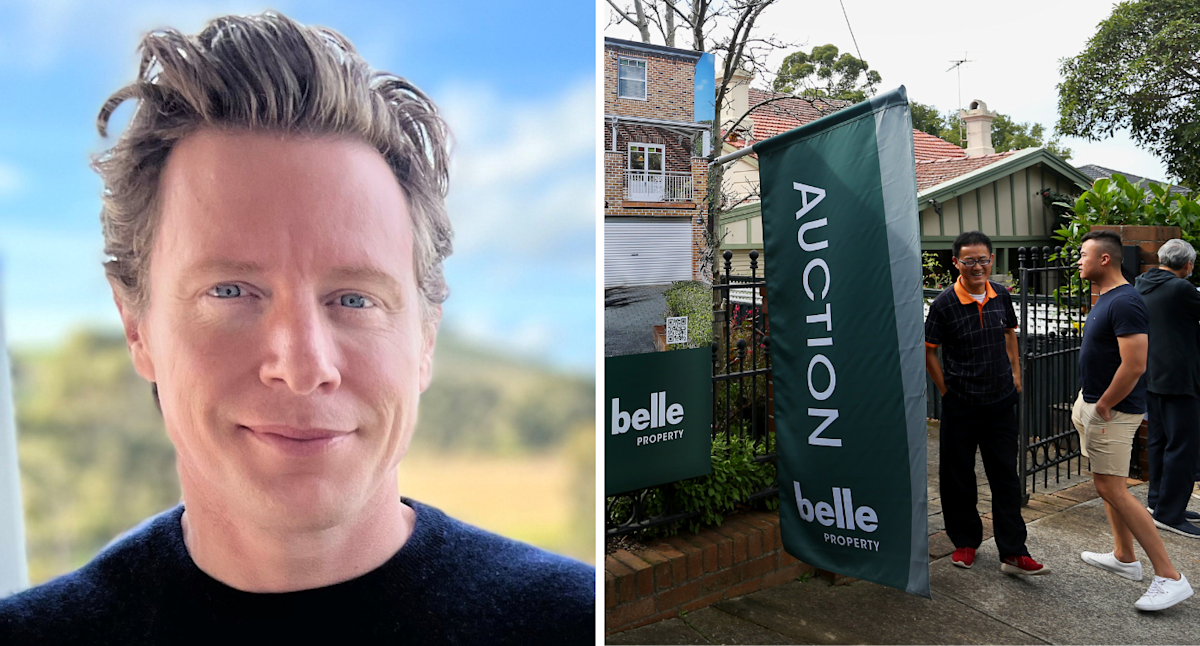The Barefoot Investor Scott Pape has argued the government’s expanded Home Guarante Scheme will push up property prices and set first-home buyers up to ‘fail’. (Source: Barefoot Investor/Getty)
The Barefoot Investor Scott Pape has issued a stark warning for Aussies taking advantage of the government’s 5 per cent deposit scheme. The finance expert has been a vocal opponent of the property buying initiative, labelling it “insulting” to first-home buyers and arguing it’s setting people up to “fail”.
The Home Guarantee Scheme, which was expanded last week, allows first-home buyers to purchase with a 5 per cent deposit without paying lenders’ mortgage insurance. The scheme now has no income caps or limits on the number of places available, with property price caps also upped.
Pape warned a first-home buyer using the scheme could end up “trapped” and was just “one bad year away from disaster”, should he run into problems. Signing up to the government’s offer wasn’t something he would recommend to his kids, he said.
RELATED
The first-home buyer Pape was responding too when he issued the warning, Tim, had blasted the finance expert for his negative stance on the scheme and argued it was his “only shot” at getting into the property market before it was too late, due to his expectations prices would keep rising.
Tim shared that he had $35,000 saved for a $700,000 house and didn’t see the benefit in continuing to wait years to save up the $140,000 needed for a traditional 20 per cent deposit.
“By then, house prices will have shot up another 20 to 30 per cent and I’ll be completely priced out,” he said.
“Meanwhile, my rent keeps going up and my landlord just sold the place out from under me.”
Do you have a story to share? Contact tamika.seeto@yahooinc.com
Pape said the man was stuck on Australia’s “most depressing treadmill”, running while prices and rents kept rising faster than he could save.
However he likened the 5 per cent deposit scheme to a “stepper machine” that was “way harder” when costs like rising home and contents insurance, council rates and more were factored in.
A $665,000 loan with a 6 per cent interest rate would translate to $3,987 a month in repayments, or $47,844 a year.
If the interest rate was 7 per cent, Pape said you’d need to find another $5,244 for repayments.
“Here’s the kicker: with only 5 per cent equity, one bad year – job loss, health scare, divorce – and you’re wiped out,” Pape wrote in his weekly column.
“You can’t refinance, can’t sell without tipping in cash. You’re trapped.
Story Continues
“Mate, with maximum debt and minimum buffer, you’re one bad year away from disaster.”
Pape said he wouldn’t let his own kids use the housing scheme. (Source: AAP)
Pape argued the scheme meant borrowers risked becoming “postcode povvos” who have borrowed to the hilt and are vulnerable to future interest rate rises and falling into negative equity.
Along with the potential risks of taking on a big loan, it’ll also cost you more in interest.
Cotality analysis found a 5 per cent deposit on a median dwelling of $848,858 would translate to $841,930 in interest over a 30-year loan.
That’s compared to a 20 per cent deposit, where you would pay $708,994 in interest. That works out to a difference of $132,936.
The research house noted that the savings on rent, particularly in cities like Sydney and Brisbane, could “outweigh the long-term loan burden”.
This would be on top of lenders’ mortgage insurance cost savings, which would normally be $27,765 for the average unit worth $695,440 and $36,730 for the average house worth $920,000.
Economists have warned the expanded scheme will likely push up prices and worsen housing affordability.
Domain chief of research and economics Dr Nicola Powell told Yahoo Finance she expected the expanded scheme would support property prices and increase activity in the lower end of the housing market.
“I think the First Home Guarantee Scheme will supercharge certain sub-sectors of the market. There’s no caps on volume,” she said.
“We could be staring down the barrel of market dynamics that is reminiscent of what we saw back in 2009 – this massive wave of first-home buyers coming to market, taking advantage of, at the time, a doubling of first-home buyers grants.”
AMP chief economist Shane Elliott said he expected the scheme would prove “very popular” with first-home buyers.
“The trouble is that the bring forward of demand at a time when supply is constrained will mean a boost to prices,” he said.
“More first home buyers in the market may encourage more supply but this will take years to flow through and will likely be from a position of much higher prices. So, all up the expanded scheme will worsen, not improve housing affordability.”
Treasury estimates the scheme would have a minor impact on home prices of about 0.5 per cent over six years.
Others believe it will have a bigger impact, with the Insurance Council of Australia estimating it could increase prices by 10 per cent in the first year alone.
Pape said the scheme would work to “pump more borrowed money into the same pool of properties”.
“More buyers with more leverage chasing the same properties equals higher prices,” he said.
Get the latest Yahoo Finance news – follow us on Facebook, LinkedIn and Instagram.

